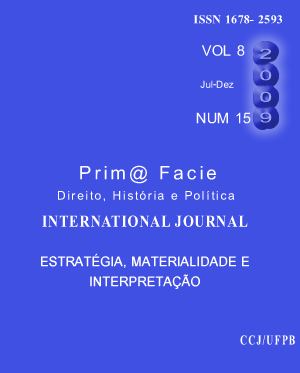The ombudsman autonomy in public administration
Keywords:
Ombudsman, Democracy, Social control of the public administrationAbstract
The present essay has on its main stream the study of the two paradigms which designs the Brazilian Public Ombudsmanship. The first one subordinates it to the administrator, directing itself to the management efficacy and “client loyalty”, and it resembles to the private ombudsmanship. The second one associates the public ombudsmanship to the defense of the democracy and the human rights, emphasizing the necessity of its autonomy, with the society participating on the election of its head. This difference of conception involves the subthemes analyzed in this work: requirements for the autonomy of the ombudsman, elements for the characterization of the ombudsmanships; the performance of these as instruments of defending and promoting the rights as well as its meaning and its political role. For this research, we used mainly the primary sources (ombudsmanship legislations and ombudsman's points of view), but also the scarce bibliography existent about the subject. We concluded that only the constitution of a national system of autonomous and democratic ombudmanships will be able to make it an idoneus instrument of social control for public administration.Downloads
Download data is not yet available.
Downloads
Published
2011-03-22
How to Cite
LYRA, R. P. The ombudsman autonomy in public administration. Prim@ Facie - Law, History and Politics, [S. l.], v. 8, n. 15, p. 161–191, 2011. Disponível em: https://periodicos.ufpb.br/ojs2/index.php/primafacie/article/view/4517. Acesso em: 22 dec. 2024.
Issue
Section
Articles


